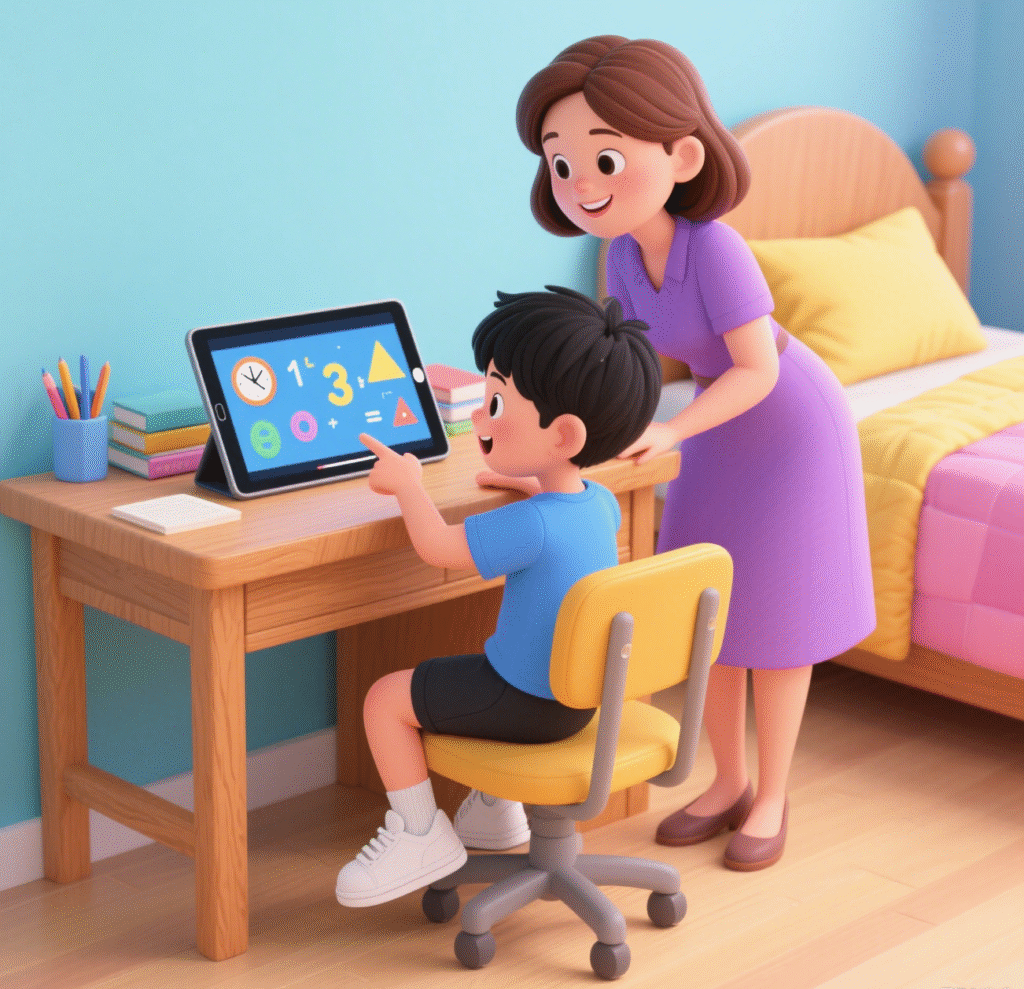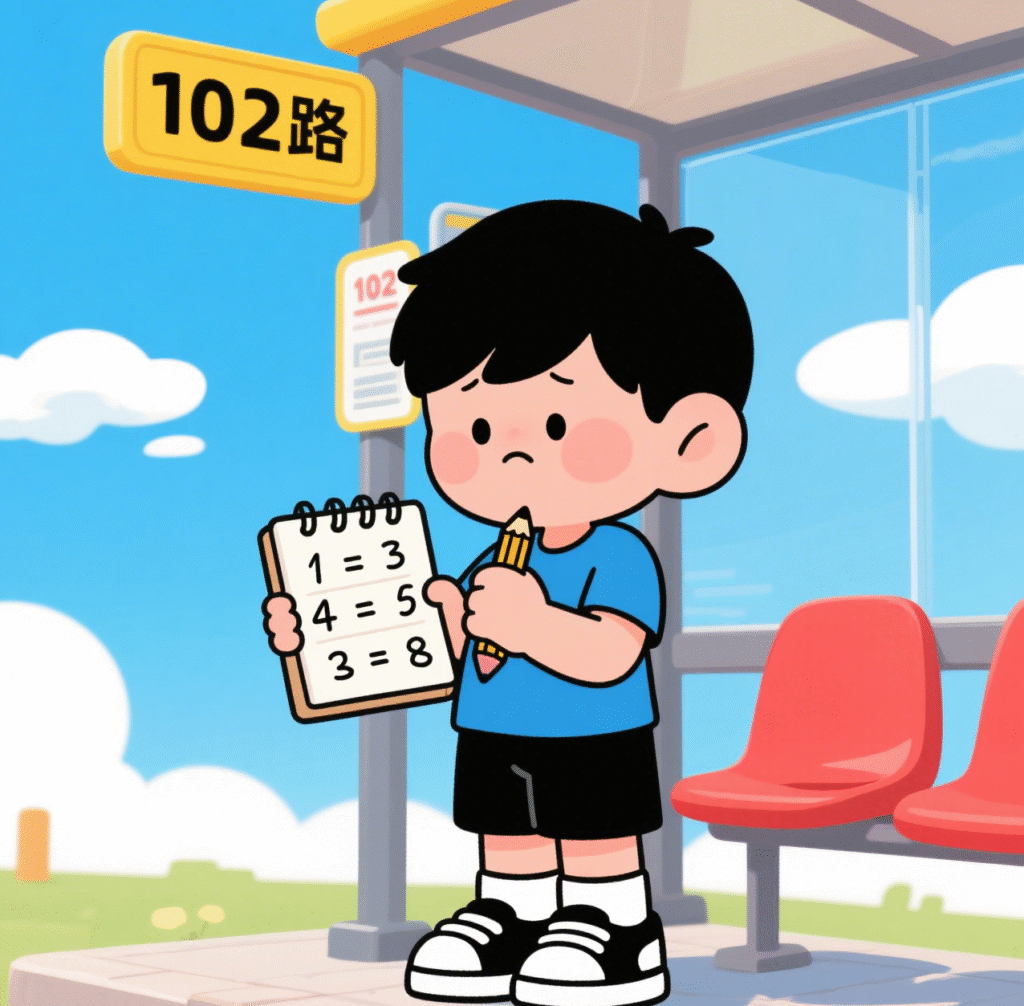在新加坡鸡娃圈闯荡的家长们,是不是总在为孩子的数学学习头秃?当孩子对着录播课视频“摸鱼”,偷偷刷短视频、玩小游戏,还假装认真做笔记时,屏幕那头的录播课老师却毫无察觉,这场景是不是让你血压飙升?别慌!Sinobus 数学线上一对一补习带着“超能力老师” 来救场啦,让屏幕里的数学老师化身“学习小雷达”,时刻紧盯孩子的学习状态,不放过任何一个知识盲区!

告别 “僵尸” 录播课,真人互动才是 yyds!普通录播课就像一部“默片”,不管孩子是两眼放空,还是眉头紧锁,它都自顾自地播放,完全没有互动和参与感可言。孩子遇到难题,只能像无头苍蝇一样反复观看或者直接摆烂。求助无门,屏幕里的“老师”也不管,补习自然就是孩子应付家长的任务罢了。但在 Sinobus数学线上一对一补习中,每节课都是老师和学生“双向奔赴”的知识之旅!我们的老师个个都有“火眼金睛”,通过摄像头,孩子一个挑眉、一个撇嘴,都逃不过他们的“法眼”。一旦发现孩子困惑,老师立刻启动引导讲解模式,“美食梗”“综艺梗”还有孩子们喜欢的动画和游戏齐齐上阵,把晦涩的数学知识变得比斑斓蛋糕还诱人。要是孩子答对了题,老师还会花式夸夸,让孩子自信心直接拉满,学习动力原地起飞!
新加坡“土著”老师,带你拿捏 PSLE!在新加坡混,数学学习当然得找“自己人”!Sinobus 的老师“熟读”新加坡MOE教学大纲,对本地数学教学体系熟得就像自家后花园。从 PSLE 必考的“组屋面积计算应用题”,到让人头大的“逻辑推理烧脑题”,老师都能精准狙击考点,教孩子见招拆招。课堂上,老师还会模拟情景举例,幽默接地气。比如讲比例问题时,拿“珍多冰里椰果、仙草的搭配比例”举例;讲概率知识,就用“彩票中奖几率”来激发孩子兴趣。这样的教学,孩子想不记住都难!
私人订制学习套餐,专治各种 “不服”!每个孩子都是限量版高奢品,学习问题自然也五花八门。在 Sinobus数学线上一对一补习,没有“一刀切”的妥协,只有专属的“学习药方”。从试听开始,老师就像给孩子的数学学习做一次“全身 CT”,精准找出薄弱点。基础差的孩子,老师会带着从加减法开始,稳扎稳打,一步步打怪升级;而那些数学小天才们,老师准备了超多高难度“隐藏关卡”,助力孩子冲击高分。而且我们还有定期“学习体检”,根据孩子的实时进步动态调整教学方案,家长也能随时 “查岗”,和老师一起为孩子的数学学习 “保驾护航”。
成绩逆袭不是梦,家长圈口碑炸裂!在 Sinobus,“学渣变学霸” 的故事每天都在上演!之前小琳的数学考试总在及格线边缘疯狂试探,经过一段时间的Sinobus数学线上一对一补习,直接逆袭成班级前十,连老师都惊掉了下巴。还有的孩子,原本看到数学题就像看到“洪水猛兽”,现在却把解题当成玩“解谜游戏”,在PSLE 考试中轻松拿下 A*。这些实打实的成绩提升,让 Sinobus 在新加坡家长圈里收获了无数好评,妥妥成为大家心中数学补习的“白月光”。
别再让孩子在录播课的“知识荒漠”里独自挣扎啦!现在就为孩子预约Sinobus 的免费试听课,让“屏幕里的超能力老师”带孩子开启数学学习的快乐之旅,下一个数学小学霸,说不定就是你家宝贝!
Contact Us! Whatsapp:+8618165329059




